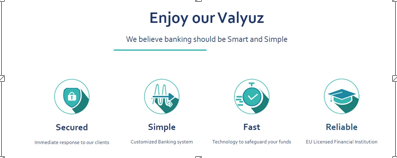Information technology (IT) is the use of computers and other digital technologies to store, retrieve, transmit, and manipulate data. It is a broad field that encompasses a wide range of activities, including:
- Developing and maintaining software applications
- Designing and managing computer networks
- Administering databases
- Providing technical support to users
- Ensuring the security of computer systems and data
IT is used in virtually every industry and sector of the economy. It is essential for businesses to operate efficiently and effectively, and it plays a vital role in government, education, healthcare, and other public services.
Information technology is a rapidly growing field, and there is a high demand for skilled IT professionals. If you are interested in a career in IT, there are many different paths you can take. You can get a degree in computer science or information technology, or you can learn IT skills through on-the-job training or certification programs.
Contents
What is Information Technology?
Information technology is one of the most important types of technology. It is the use of computers and other digital technologies to store, retrieve, transmit, and manipulate data. It encompasses a wide range of activities, including:
- Hardware: The physical components of a computer system, such as the CPU, memory, and storage devices.
- Software: The programs that run on a computer system, such as operating systems, application software, and programming languages.
- Data: The information that is stored and processed by a computer system.
- Networks: The systems that connect computers together so that they can share data and resources.
- The Internet: A global network of computers that allows people to communicate and share information with each other.
Information technology is used in virtually every industry and sector of the economy. It is essential for businesses to operate efficiently and effectively, and it plays a vital role in government, education, healthcare, and other public services.
Here are some examples of how information technology is used in the real world:
- Businesses use IT to manage their inventory, track their finances, and communicate with their customers and suppliers.
- Governments use IT to provide services to citizens, such as online tax filing and passport applications.
- Educational institutions use IT to deliver online courses and provide students with access to digital resources.
- Healthcare providers use IT to keep electronic health records and provide telemedicine services to patients.
The History of Information Technology
The history of information technology can be traced back to the early days of computing. In the 1940s and 1950s, the first computers were developed for use in scientific and military applications. These computers were large and expensive, and they were only accessible to a small number of people.
In the 1960s and 1970s, computers became smaller and more affordable. This led to the development of minicomputers and personal computers, which made computing more accessible to the general public.
In the 1980s and 1990s, the development of the Internet and the World Wide Web revolutionized information technology. The internet made it possible for people to connect to each other and access information from anywhere in the world.
In recent years, there has been rapid growth in the development of new information technologies, such as cloud computing, big data, and artificial intelligence. These technologies are changing the way we live and work, and they are creating new opportunities for businesses and individuals.
The Different Types of Information Technology
There are many different types of information technology jobs. Some of the most common types of IT jobs include:
- Software developers: Design, develop, and test software applications.
- Web developers: Design, develop, and maintain websites and web applications.
- System administrators: Install, configure, and maintain computer systems and networks.
- Database administrators: Create, manage, and maintain databases.
- Network engineers: Design, implement, and maintain computer networks.
- Security analysts: Protect computer systems and networks from cyberattacks.
- Technical support specialists: Provide technical assistance to users of computer systems and software.
IT jobs are available in a variety of industries, including healthcare, finance, education, and government. IT professionals can work in full-time, part-time, or contract positions.
The Benefits of Working in Information Technology
There are many benefits to working in information technology. IT jobs are typically well-paying, and there is a high demand for skilled IT professionals. IT jobs also offer good job security and opportunities for advancement.
In addition, IT jobs can be very rewarding and fulfilling. IT professionals have the opportunity to use their skills to solve complex problems and make a real difference in the world.
How to Get Started in a Career in Information Technology
If you are interested in a career in information technology, there are many different paths you can take. You can get a degree in computer science or information technology, or you can learn IT skills through on-the-job training or certification programs.
Here are some tips for getting started in a career in information technology:
- Identify your interests and skills. What areas of IT are you most interested in? What are your strengths and weaknesses? Once you have a good understanding of your interests and skills, you can start to narrow down your focus.
- Research different IT careers. There are many different types of IT jobs, so it is important to do your research and learn about the different options available. You can find information about IT careers on websites such as the US Bureau of Labor Statistics and the Information Technology Association of America.
- Get the necessary education and training. Depending on the type of IT job you are interested in, you may need to get a degree in computer science or information technology. However, there are also many IT jobs that do not require a college degree. You can learn IT skills through on-the-job training or certification programs.
- Gain experience. One of the best ways to get started in a career in IT is to gain experience. You can do this by volunteering, interning, or working part-time in an IT role.
- Network with IT professionals. Networking is a great way to learn about different IT jobs and meet potential employers. You can network with IT professionals by attending industry events, joining online forums, and connecting with people on LinkedIn.
The Latest Trends in Information Technology
The field of information technology is constantly evolving, and new trends are emerging all the time. Some of the latest trends in information technology include:
- Cloud computing: Cloud computing is the delivery of computing services over the internet. Cloud computing services include storage, processing, and databases.
- Big data: Big data is the term used to describe large and complex datasets that are difficult to process using traditional data processing methods.
- Artificial intelligence: Artificial intelligence (AI) is the field of computer science that deals with the creation of intelligent agents, which are systems that can reason, learn, and act autonomously.
- Cybersecurity: Cybersecurity is the practice of protecting computer systems and networks from cyberattacks.
These are just a few of the latest trends in information technology. It is important to stay up-to-date on the latest trends so that you can develop the skills you need to be successful in your career.
The Future of Information Technology
The future of information technology is very bright. IT is already playing a vital role in our lives, and its importance is only going to grow in the years to come.
Some of the ways that information technology is expected to change in the future include:
- The rise of artificial intelligence: AI is expected to play a major role in the future of information technology. AI is already being used in a variety of ways, such as in self-driving cars and facial recognition software. In the future, AI is expected to be used in even more ways, such as in healthcare and education.
- The growth of the Internet of Things: The Internet of Things (IoT) is a network of physical objects that are connected to the Internet and can collect and exchange data. The IoT is expected to grow rapidly in the future, and it will create new opportunities for businesses and individuals.
- The development of new technologies: New information technologies are constantly being developed. For example, quantum computing is a new type of computing that has the potential to revolutionize many industries.
These are just a few of the ways that information technology is expected to change in the future. The future of IT is very exciting, and there are many opportunities for those who are interested in this field.
Conclusion
Information technology is a rapidly growing field with many opportunities for businesses and individuals. If you are interested in a career in IT, there are many different paths you can take.
To get started in a career in IT, you should identify your interests and skills, research different IT careers, get the necessary education and training, gain experience, and network with IT professionals.
It is also important to stay up-to-date on the latest trends in information technology. The field of IT is constantly evolving, and new trends are emerging all the time.
The future of information technology is very bright. IT is already playing a vital role in our lives, and its importance is only going to grow in the years to come.



